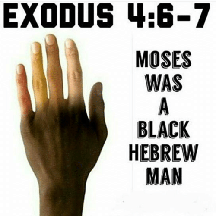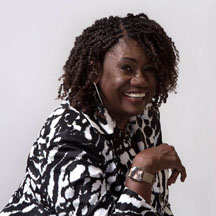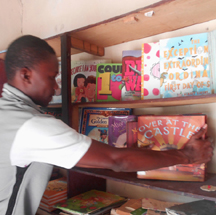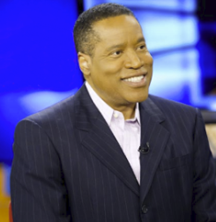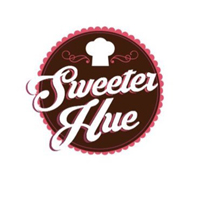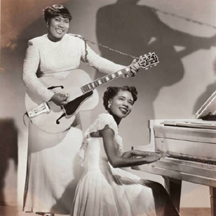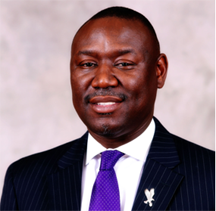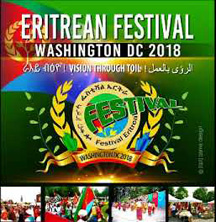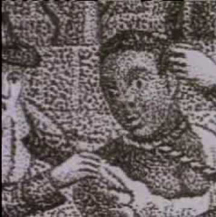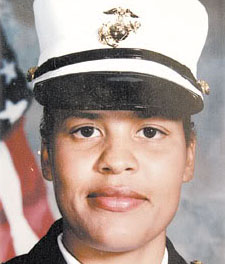After dancers completed their energizing welcoming act to the pulsating and unifying sounds of African drummers, Reverend Sylvester Robinson further set the opening of Ebenezer African Methodist Episcopal’s The Heritage Weekend: The Parallel when he said persuasively, "America has worked hard to disconnect us."
Through speakers, demonstrations, food, children activities, and a fashion show, about 300 people followed Robinson with dialogue on building pan–African relations in the well–appointed Fort Washington, Maryland church.
Having been married to a Continental African for 20 years and having had two children with him, African–American Michelle Balamani Silvera joked that many couples have arguments, but "we always had World Wars."
After the crowd’s laughter died to a smile, the naturally and precisely coiffed therapist and minister admitted that some of those disagreements were "cultural." Nevertheless, she led a very interactive "courageous conversation," about the perceptions and experiences African–Americans and Continental Africans have had with each other.
She was followed by Reverend Lukata Mjumbe. His Irvington, New Jersey Presbyterian congregation includes people from 13 African and Caribbean countries, plus the United States. In baby blue traditional African garb, Mjumbe echoed much of Balamani Silvera’s thinking, including the use of prideful "Wakanda" references. However, he emphasized that entertainment industry images affect our opinions and he offered proof that "Christianity is not a White man’s religion."
Obviously, Balamani Silvera, has not let her personal "world wars" stop her from reaching across the pond. "Our coming together is more important than the things that divide us," she admonished. As she led participants though courageous conversations about their experiences with other African people, she reminded the participants that while their experiences were real, they cannot represent the billions of people living in the 54 African countries.
Surprisingly, she refrained from the common mantra that Europeans are our enemy. Instead she concluded, "Our mutual enemy is our internal mindset that allows us to continue to be divided when we could seek ways to build bridges that allow us to come together."
Mjumbe reinforced the sentiment that African people are diverse and individuals cannot be judged based on limited experiences with others. He started his talk by masterfully using an episode of TV’s "Good Times," to clearly demonstrate with humor how Hollywood too often paints a simple and incomplete picture of Africans that too often stick in our minds.
Remember when Thelma was planning to get married to Ibe, an African? he questioned. In the episode, Florida Evans, Thelma’s mother, was generally against the marriage, but was more strongly against the marriage when she learned that Thelma would be Ibe’s first wife and that others would probably follow.
"And, that sticks in our mind of what Africans are like," he said as he pointed out that there was no further discussion about the character in the series. However, there were explorations of several other characters including Ned the Wino.
Mjumbe examined other Continental African characters including Akeem in "Coming to America," Dinka in "Barbershop," and Michael Blackson in "Next Friday." Judging Africa by your relationship with a few is not good, "how would you feel if I judged you based on what I know of Clarence Thomas?" he said as the audience roared in agreement.
Ebenezer’s Heritage Weekend Connected Us | Creating Connections With Gambians | New Plays
Having trouble viewing this email? Click here
Having trouble viewing this email? Click here
July 19 – August 1, 2018
On The Dock This Issue:

Ebenezer AME’s Heritage Weekend Worked Hard to Connect Us
Reverend Lukata Mjumbe emphasized that entertainment industry images affect our opinions and he offered proof that "Christianity is not a White man’s religion."
Reverend Lukata Mjumbe emphasized that entertainment industry images affect our opinions and he offered proof that "Christianity is not a White man’s religion."
POHGEP – Creating Connections and Hope with Gambians
We have already raised $1,350, or 40 percent, of the $3,370 we need to complete our work for 2018. We need your donation before Saturday, September 1.
We have already raised $1,350, or 40 percent, of the $3,370 we need to complete our work for 2018. We need your donation before Saturday, September 1.
Opinion: Slavery: What They Didn't Teach in My High School
African slaves transported by Arabs across the Sahara Desert died more often than slaves making the Middle Passage to the New World by ship.
African slaves transported by Arabs across the Sahara Desert died more often than slaves making the Middle Passage to the New World by ship.
New At Port Of Harlem Magazine
And, we welcome a new advertiser, Sweeter Hue, 1540 North Capitol Street, NW, Suite 201.
And, we welcome a new advertiser, Sweeter Hue, 1540 North Capitol Street, NW, Suite 201.
New Plays – More Free Theater Tickets in Metro DC/Baltimore
Theaters have announced their 2018–2019 season and Port Of Harlem is looking forward to seeing and reviewing many of them. And, you have a chances of winning tickets!
Theaters have announced their 2018–2019 season and Port Of Harlem is looking forward to seeing and reviewing many of them. And, you have a chances of winning tickets!
Famed Lawyer Benjamin L. Crump Appointed to LGBTQ/SGL Rights Board
Crump has been at the forefront of the modern day Civil Rights Movement, becoming a voice for Trayvon Martin, Michael Brown, and Martin Lee Anderson following their tragic encounters with racism in America.
Crump has been at the forefront of the modern day Civil Rights Movement, becoming a voice for Trayvon Martin, Michael Brown, and Martin Lee Anderson following their tragic encounters with racism in America.
Readers' Trends
See what is most popular in Port Of Harlem's emailed issue, and on our web, Pinterest, and Facebook pages.
See what is most popular in Port Of Harlem's emailed issue, and on our web, Pinterest, and Facebook pages.
But it is not only Hollywood that helps set the minds of African and African–Americans on what the other is like says Balamani Silvera, it’s also our schools. "There are no conversations in the school systems here or there about the realities of being Africans," at home or abroad, Balamani–Silvera added.
Mjumbe examined other Continental African characters including Akeem in "Coming to America." Judging Africa by your relationship with a few is not good, "how would you feel if I judged you based on what I know of Clarence Thomas?" he said as the audience roared in agreement.
Before the audience, most of whom are accustomed to seeing a Jesus who looks like them at Ebenezer’s main entrance, took a break for a tasting of African and American foods, Mjumbe pointed out that the oldest Christian churches are in Ethiopia. He also said that the only White skin presence in the Old Testament is at Exodus 4:6 when Moses’ hand turned "leprous as snow," then "turned again as his other flesh."
Responding to many African people of conscious who often declare Christianity as a White man’s oppressive religion, Mjumbe said such beliefs are incorrect. "The story of The Bible is the story of Africa," he declared.
Throughout the day, speakers and participants talked of their travels to Africa and how it helped them build bridges with Continental Africans. Bernadette Champion of Champion Services Travel agreed that more travel to the homeland or places where Africans in the diaspora live is essential, but strongly suggested that travelers and tourists do their homework first. "All tours are not alike," she warned with animation.
When leading a tour of South Africa, for instance, she said that the typical Eurocentric tour will include Cape Town, The Winery, and a safari. On our trips, she added matter of factly, "We intentionally include must–sees such as Johannesburg, Soweto, and the Apartheid Movement tour, plus the traditional tourist spots."
African and African Americans can improve their relationships with each other, concluded Balamani Silvera by "being intentional about coming together to celebrate our strengths and our ability to feel connected to each other at the sound of the African drum."
From Our Archives: Getting More Out of Your Vacation for Less with Bernadette Champion of Champion Services Travel.
Note: The Port Of Harlem Gambian Education Partnership (POHGEP) has been creating connections between Americans and Gambians since 2002. Recently, children at Unity Baptist Church of Jacksonville, Florida have been tasting snack products sent to them from The Gambia by a young lady whose education they are sponsoring via POHGEP – – one method of intentionally connecting with their brethren and sistren.
Mjumbe examined other Continental African characters including Akeem in "Coming to America." Judging Africa by your relationship with a few is not good, "how would you feel if I judged you based on what I know of Clarence Thomas?" he said as the audience roared in agreement.
Before the audience, most of whom are accustomed to seeing a Jesus who looks like them at Ebenezer’s main entrance, took a break for a tasting of African and American foods, Mjumbe pointed out that the oldest Christian churches are in Ethiopia. He also said that the only White skin presence in the Old Testament is at Exodus 4:6 when Moses’ hand turned "leprous as snow," then "turned again as his other flesh."
Responding to many African people of conscious who often declare Christianity as a White man’s oppressive religion, Mjumbe said such beliefs are incorrect. "The story of The Bible is the story of Africa," he declared.
Throughout the day, speakers and participants talked of their travels to Africa and how it helped them build bridges with Continental Africans. Bernadette Champion of Champion Services Travel agreed that more travel to the homeland or places where Africans in the diaspora live is essential, but strongly suggested that travelers and tourists do their homework first. "All tours are not alike," she warned with animation.
When leading a tour of South Africa, for instance, she said that the typical Eurocentric tour will include Cape Town, The Winery, and a safari. On our trips, she added matter of factly, "We intentionally include must–sees such as Johannesburg, Soweto, and the Apartheid Movement tour, plus the traditional tourist spots."
African and African Americans can improve their relationships with each other, concluded Balamani Silvera by "being intentional about coming together to celebrate our strengths and our ability to feel connected to each other at the sound of the African drum."
From Our Archives: Getting More Out of Your Vacation for Less with Bernadette Champion of Champion Services Travel.
Note: The Port Of Harlem Gambian Education Partnership (POHGEP) has been creating connections between Americans and Gambians since 2002. Recently, children at Unity Baptist Church of Jacksonville, Florida have been tasting snack products sent to them from The Gambia by a young lady whose education they are sponsoring via POHGEP – – one method of intentionally connecting with their brethren and sistren.
Starting this fall, more than 7,000 children in The Gambia will have access to books, some for the very first time, in their own village. The Port Of Harlem Gambian Education Partnership (POHGEP), with the support of Follett and two of our gracious readers, are starting a new small library, resupplying one we started in 2004, and another started by European travelers. We need you to join the effort.
The books for the libraries are new and varied. They range from "Dr. Seuss" and "How and Why Do Animals Adapt" to One Plastic Bag, which, ironically, is set in Nema Kunku, the village where we started the first library in 2004.
"The library has tremendously impacted the reading culture of the kids in Nema Kunku," says Jabel Ceesay, secretary of the Baobab Youth Development Association (BYDA), our partner with the library in Nema Kunku. "For instance, apart from the books they use at school, kids hardly have access to supplementary reading materials to develop their reading skills. However, with the presence of the library, they have virtually increased their desire to read and their vocabulary, and they have improved their English speaking skills," he continued.
We have already raised $1,350, or 40 percent, of the $3,370 we need to complete our work for 2018. We need your donation before Saturday, September 1.
Generally, the money you and other readers donate advances groups of people, but this year we are also working with a trail blazing young lady, Jonsaba Jonsy Jaiteh. We shared her story of forced female genital mutilation, teenage marriage, and her relentless, Maxine Water’s type of resistance in Breaking the Culture of Silence (Part 1 of 2) and Breaking the Culture of Silence (Part 2 of 2). When her trail blazes to a good ending, other women will not be afraid to follow.
The books for the libraries are new and varied. They range from "Dr. Seuss" and "How and Why Do Animals Adapt" to One Plastic Bag, which, ironically, is set in Nema Kunku, the village where we started the first library in 2004.
"The library has tremendously impacted the reading culture of the kids in Nema Kunku," says Jabel Ceesay, secretary of the Baobab Youth Development Association (BYDA), our partner with the library in Nema Kunku. "For instance, apart from the books they use at school, kids hardly have access to supplementary reading materials to develop their reading skills. However, with the presence of the library, they have virtually increased their desire to read and their vocabulary, and they have improved their English speaking skills," he continued.
We have already raised $1,350, or 40 percent, of the $3,370 we need to complete our work for 2018. We need your donation before Saturday, September 1.
Generally, the money you and other readers donate advances groups of people, but this year we are also working with a trail blazing young lady, Jonsaba Jonsy Jaiteh. We shared her story of forced female genital mutilation, teenage marriage, and her relentless, Maxine Water’s type of resistance in Breaking the Culture of Silence (Part 1 of 2) and Breaking the Culture of Silence (Part 2 of 2). When her trail blazes to a good ending, other women will not be afraid to follow.
With the support of our readers to date, Jaiteh now has her own small place and the peace of mind to finish her exams and start her final year of high school this fall. She came to us, via her teacher and Mandela Fellow, Ruqayah Sesay, who unselfishly insisted that we assist one of her students instead of herself.
We have been managing our original project since 2002, which supports K–12 children with funds to attend school. Since its inception, school has become "free" in The Gambia, but many families still cannot afford the school fees. We sponsor 18 children with the BYDA as part of their community service efforts. We have only seven unfunded children, but normally, their previous sponsors continue their funding and we hope they will continue to do so.
The Port Of Harlem Gambian Education Partnership has been creating connections since 2002, you can join now with a donation of any amount. If you live in MetroDC, you can also donate summer–weight clothing for thin people, as most Gambians are thin. To donate call POGHEP at 202–583–3438 or reply to this email.
This has been our most ambitious year to date. The impact we are making is real says Ceesay and Jaitah, and they join POHGEP in asking for your help today.
After being forced to live in circumstances not of her own choosing, Jaitah thanked Port Of Harlem readers yesterday, after moving into her own space with funds donated to POHGEP. "I could have not imagined that I would be happily living under a safe and secure roof, I feel blessed," said the young women’s rights advocate.
We have been managing our original project since 2002, which supports K–12 children with funds to attend school. Since its inception, school has become "free" in The Gambia, but many families still cannot afford the school fees. We sponsor 18 children with the BYDA as part of their community service efforts. We have only seven unfunded children, but normally, their previous sponsors continue their funding and we hope they will continue to do so.
The Port Of Harlem Gambian Education Partnership has been creating connections since 2002, you can join now with a donation of any amount. If you live in MetroDC, you can also donate summer–weight clothing for thin people, as most Gambians are thin. To donate call POGHEP at 202–583–3438 or reply to this email.
This has been our most ambitious year to date. The impact we are making is real says Ceesay and Jaitah, and they join POHGEP in asking for your help today.
After being forced to live in circumstances not of her own choosing, Jaitah thanked Port Of Harlem readers yesterday, after moving into her own space with funds donated to POHGEP. "I could have not imagined that I would be happily living under a safe and secure roof, I feel blessed," said the young women’s rights advocate.
A man I have known since grade school changed his name, years ago, to an Arabic one. He told me he rejected Christianity as "the White man's religion that justified slavery." He argued Africans taken out of that continent were owed reparations. "From whom?" I asked.
Arab slavers took more Africans out of Africa and transported them to the Middle East and to South America than European slavers took out of Africa and brought to North America. Arab slavers began taking slaves out of Africa beginning in the ninth century – – centuries before the European slave trade – – and continued well after.
Arab slavers took more Africans out of Africa and transported them to the Middle East and to South America than European slavers took out of Africa and brought to North America. Arab slavers began taking slaves out of Africa beginning in the ninth century – – centuries before the European slave trade – – and continued well after.
In "Prisons & Slavery," John Dewar Gleissner writes: "The Arabs' treatment of black Africans can aptly be termed an African Holocaust. Arabs killed more Africans in transit, especially when crossing the Sahara Desert, than Europeans and Americans, and over more centuries, both before and after the years of the Atlantic slave trade.
Arab Muslims began extracting millions of black African slaves centuries before Christian nations did. Arab slave traders removed slaves from Africa for about 13 centuries, compared to three centuries of the Atlantic slave trade. African slaves transported by Arabs across the Sahara Desert died more often than slaves making the Middle Passage to the New World by ship. Slaves invariably died within five years if they worked in the Ottoman Empire's Sahara salt mines."
Read More
Arab Muslims began extracting millions of black African slaves centuries before Christian nations did. Arab slave traders removed slaves from Africa for about 13 centuries, compared to three centuries of the Atlantic slave trade. African slaves transported by Arabs across the Sahara Desert died more often than slaves making the Middle Passage to the New World by ship. Slaves invariably died within five years if they worked in the Ottoman Empire's Sahara salt mines."
Read More
We just updated the Electronic Issues Archives feature on our website so you can easily search and read back issues of Port Of Harlem’s electronic issues on your cell phone, tablet, laptop, and other devices.
And, we welcome a new advertiser, Sweeter Hue, 1540 North Capitol Street, NW, Suite 201, at the corner of North Capitol and Florida Avenues, NW in Washington, DC. The bakery is open Tuesday through Friday from 10a to 7p.
And, we welcome a new advertiser, Sweeter Hue, 1540 North Capitol Street, NW, Suite 201, at the corner of North Capitol and Florida Avenues, NW in Washington, DC. The bakery is open Tuesday through Friday from 10a to 7p.
Besides free street parking, Sweeter Hue is on several bus lines (90, 92, X3, 80, P6) and a three–minute walk from the NoMa Metro station on the Red Line.
Metro DC theaters have announced their 2018–2019 season and Port Of Harlem is looking forward to seeing and reviewing many of them. And, you will have chances of winning tickets in future issues of Port Of Harlem.
For starters, Mosaic Theater at The Atlas Performing Arts Theater has a musical that I will not miss, "Marie and Rosetta," about gospel icon and rock pioneer Rosetta Tharpe and protégée Marie Knight. However, I won’t be surprised if another musical, "Twisted Melodies: The Donny Hathaway Story," a co–production with Baltimore Center Stage and The Apollo Theatre, wins the popularity contest.
Being a fan of "Uncle" Frederick Douglass, I am waiting to experience "The Agitators," a new play about Susan B. Anthony and Frederick Douglass as well as a new adaptation of Richard Wright’s classic novel, "Native Son." I remember reading "Native Son" as a teenager and not being able to sleep very well at night.
Like our friends at Mosaic, Studio Theater is offering must see plays including "The Fall" and "Kings."
Seven South African students wrote the former as the statue of imperialist Cecil Rhodes was dismantled at the University of Cape Town. Subsequently, the students charted their experiences as activists who brought down a statue and then grappled with decolonizing what was left standing in its wake: the legacies of race, class, gender, history, and power 24 years after the official end of Apartheid.
The former is also political. In "Kings," Representative Sydney Millsap rides a Blue Wave into DC. armed with her ideals and sense of duty, and refuses to play by the rules of special interest – – or her own party.
Another performance at Studio Theater, "Admissions," delves into the questions surrounding privilege when otherwise progressive educators, who try to diversify their own school, are faced with their high–achieving son’s Ivy League dreams being deferred. Um, race matters.
For starters, Mosaic Theater at The Atlas Performing Arts Theater has a musical that I will not miss, "Marie and Rosetta," about gospel icon and rock pioneer Rosetta Tharpe and protégée Marie Knight. However, I won’t be surprised if another musical, "Twisted Melodies: The Donny Hathaway Story," a co–production with Baltimore Center Stage and The Apollo Theatre, wins the popularity contest.
Being a fan of "Uncle" Frederick Douglass, I am waiting to experience "The Agitators," a new play about Susan B. Anthony and Frederick Douglass as well as a new adaptation of Richard Wright’s classic novel, "Native Son." I remember reading "Native Son" as a teenager and not being able to sleep very well at night.
Like our friends at Mosaic, Studio Theater is offering must see plays including "The Fall" and "Kings."
Seven South African students wrote the former as the statue of imperialist Cecil Rhodes was dismantled at the University of Cape Town. Subsequently, the students charted their experiences as activists who brought down a statue and then grappled with decolonizing what was left standing in its wake: the legacies of race, class, gender, history, and power 24 years after the official end of Apartheid.
The former is also political. In "Kings," Representative Sydney Millsap rides a Blue Wave into DC. armed with her ideals and sense of duty, and refuses to play by the rules of special interest – – or her own party.
Another performance at Studio Theater, "Admissions," delves into the questions surrounding privilege when otherwise progressive educators, who try to diversify their own school, are faced with their high–achieving son’s Ivy League dreams being deferred. Um, race matters.
"P.Y.G. or the Mis–Education of Dorian Belle," also reminds us that race matters. In this play, Canadian pop sweetheart hires his favorite hip–hop artists—Chicagoans Black and Alexand, the ‘bad boy’ rappers of Petty Young Goons—to help him toughen up his image. They’re Black, he’s White.
Meanwhile, our long–time friends at MetroStage will have one final season at their home for 30 years at 1201 N. Royal in Alexandria, VA. They will later move around the corner to the soon–to–be renovated condo converted out of the Crowne Plaza Hotel on North Fairfax Street. "We will be the arts and cultural anchor in a newly designated Arts and Cultural District," says Producing Artistic Director Carolyn Griffin.
They will start their final season with the playwright that launched them in 1987, South African Athol Fugard. He is best known for his political plays opposing the system of apartheid and for the 2005 Academy Award–winning film of his novel "Tsotsi." MetroStage will produce his most recent play "The Painted Rocks at Revolver Creek." Outsider artist Nukain Mabusa inspired the play that takes place during and in post–apartheid South Africa.
Woolly Mammoth's "BLKS," whose feature characters are twentysomething Black women wrestling with love, uncomfortable truths, and the anguish of adulting in New York City sounds interesting as does Baltimore Center Stage’s "A Wonder in My Soul." At the Baltimore performance, two longtime beauty shop co–owners and best friends grapple with a major decision: remain as the anchor of their beloved neighborhood, or relocate under the pressures of gentrification and crime. Lastly, in Bethesda, at Maryland’s Round House, August Wilson’s "Gem of the Ocean," will be center stage.
Note: Port Of Harlem announces ticket giveaways, usually just before the play’s opening. A click of a button enters you into the drawing. We select all winners randomly.
Meanwhile, our long–time friends at MetroStage will have one final season at their home for 30 years at 1201 N. Royal in Alexandria, VA. They will later move around the corner to the soon–to–be renovated condo converted out of the Crowne Plaza Hotel on North Fairfax Street. "We will be the arts and cultural anchor in a newly designated Arts and Cultural District," says Producing Artistic Director Carolyn Griffin.
They will start their final season with the playwright that launched them in 1987, South African Athol Fugard. He is best known for his political plays opposing the system of apartheid and for the 2005 Academy Award–winning film of his novel "Tsotsi." MetroStage will produce his most recent play "The Painted Rocks at Revolver Creek." Outsider artist Nukain Mabusa inspired the play that takes place during and in post–apartheid South Africa.
Woolly Mammoth's "BLKS," whose feature characters are twentysomething Black women wrestling with love, uncomfortable truths, and the anguish of adulting in New York City sounds interesting as does Baltimore Center Stage’s "A Wonder in My Soul." At the Baltimore performance, two longtime beauty shop co–owners and best friends grapple with a major decision: remain as the anchor of their beloved neighborhood, or relocate under the pressures of gentrification and crime. Lastly, in Bethesda, at Maryland’s Round House, August Wilson’s "Gem of the Ocean," will be center stage.
Note: Port Of Harlem announces ticket giveaways, usually just before the play’s opening. A click of a button enters you into the drawing. We select all winners randomly.
The National Black Justice Coalition (NBJC) announced the appointment of national civil rights attorney Benjamin L. Crump to its Board of Directors. NBJC is the nation’s leading civil rights organization dedicated to the empowerment of Black lesbian, gay, bisexual, transgender, queer and same gender loving (LGBTQ/SGL) people, including people living with HIV/AIDS.
Crump is founder of the Tallahassee, Florida–based law firm Ben Crump Law, PLLC. Crump has been at the forefront of the modern day Civil Rights Movement, becoming a voice for Trayvon Martin, Michael Brown, and Martin Lee Anderson following their tragic encounters with racism in America.
"I often say that ‘for as long as there have been Black people, there have been Black LGBTQ/SGL people,’ and given this truth, it is imperative that we have civil rights leaders who recognize the intersectional oppression our community faces," said David J. Johns, NBJC Executive Director.
Crump is founder of the Tallahassee, Florida–based law firm Ben Crump Law, PLLC. Crump has been at the forefront of the modern day Civil Rights Movement, becoming a voice for Trayvon Martin, Michael Brown, and Martin Lee Anderson following their tragic encounters with racism in America.
"I often say that ‘for as long as there have been Black people, there have been Black LGBTQ/SGL people,’ and given this truth, it is imperative that we have civil rights leaders who recognize the intersectional oppression our community faces," said David J. Johns, NBJC Executive Director.
"I am honored to join the Board of the National Black Justice Coalition, our nation’s leading civil rights organization at the intersection of the Black and LGBTQ communities," said Crump. "For more than 15 years, NBJC has been doing the very necessary work to fight for social justice and racial equality for all Black people through fervent advocacy, public policy change, and the recognition — and celebration — of the contributions of the Black LGBTQ community. It is long overdue that leaders in the Black community step up and support the LGBTQ movement, and I am looking forward to joining NBJC in their fight."
Crump added, "More and more, I am seeing injustices that the LGBTQ community faces — from being harassed, stigmatized, marginalized, and murdered — and it’s most prevalent among people of color who are also LGBTQ, simply for existing in this world. I will not stand by and allow this and am committed to continuing my work with NBJC to ensure that Black LGBTQ people have the necessary protections under the law that are rightfully theirs."
In addition to his work with NBJC, Crump is heavily involved in his community, including previously endowed scholarships to Florida A&M University, Livingston College, Florida State University, and Bethune–Cookman University for minority law students.
Crump added, "More and more, I am seeing injustices that the LGBTQ community faces — from being harassed, stigmatized, marginalized, and murdered — and it’s most prevalent among people of color who are also LGBTQ, simply for existing in this world. I will not stand by and allow this and am committed to continuing my work with NBJC to ensure that Black LGBTQ people have the necessary protections under the law that are rightfully theirs."
In addition to his work with NBJC, Crump is heavily involved in his community, including previously endowed scholarships to Florida A&M University, Livingston College, Florida State University, and Bethune–Cookman University for minority law students.
Washington
Panel Discussion: Bullets to Ballots:
the Voting Rights Legacy of the United States Colored Troops
(Featuring David Blight, Asa Gordon, Gloria Browne-Marshall, and Frank Smith)
African American Civil War Museum
1925 Vermont Avenue, NW
Thu, Jul 19, 7p-8:30p, free
Eritrean Festival 2018
Fri, Jul 20– Jul Sun, 22, varies
An Intimate Evening with Wynton Marsalis
Celebrating 20 years of the Washington Jazz Arts Institute
Peoples Congregational United Church of Christ
4704 13th Street, NW
Fri, Jul 20, 6:30p–8:30p, $75
Mandela Day of Service
Oxon Run Park
3713 Wheeler Road, SE
Sat, Jul 21, 8a–10a, free
AIHM & Islamic Relief USA Food Distribution and Health Screening
America's Islamic Heritage Museum (AIHM)
2315 Martin Luther King Jr Ave, SE
Sat, Jul 21,10a–12p, free
Cedar Heights Family Day
Cedar Heights Community Center
1200 Glen Willow Drive
Seat Pleasant, MD
Sat, Jul 21, 12p–6p, free
The Alexandria Black History Museum Short Film Series
- This Little Light of Mine: The Legacy of Fannie Lou Hamer
- Dignity and Defiance: A Portrait of Mary Church Terrel
- An Outrage
- The Hail-Storm: John Dabney in Virginia
The Lyceum
201 S Washington Street
Alexandria, VA
Sat, July 28, ,11a-3p, $10
Minister James Brown
NFL Sportscaster from "Inside The NFL" and "NFL Today"
Mt. Nebo AME Church
1001 Old Mitchellville Rd
Bowie, MD
Sun, July 29, 9:45a
Audubon Photography Awards Traveling Exhibit
Watkins Nature Center
301 Watkins Park Drive
Upper Marlboro, MD
Wed, Aug 1–Wed, Aug 22
Mon–Sat, 8:30a–5p and Sun 11a–4p, free
Panel Discussion: Bullets to Ballots:
the Voting Rights Legacy of the United States Colored Troops
(Featuring David Blight, Asa Gordon, Gloria Browne-Marshall, and Frank Smith)
African American Civil War Museum
1925 Vermont Avenue, NW
Thu, Jul 19, 7p-8:30p, free
Eritrean Festival 2018
Fri, Jul 20– Jul Sun, 22, varies
An Intimate Evening with Wynton Marsalis
Celebrating 20 years of the Washington Jazz Arts Institute
Peoples Congregational United Church of Christ
4704 13th Street, NW
Fri, Jul 20, 6:30p–8:30p, $75
Mandela Day of Service
Oxon Run Park
3713 Wheeler Road, SE
Sat, Jul 21, 8a–10a, free
AIHM & Islamic Relief USA Food Distribution and Health Screening
America's Islamic Heritage Museum (AIHM)
2315 Martin Luther King Jr Ave, SE
Sat, Jul 21,10a–12p, free
Cedar Heights Family Day
Cedar Heights Community Center
1200 Glen Willow Drive
Seat Pleasant, MD
Sat, Jul 21, 12p–6p, free
The Alexandria Black History Museum Short Film Series
- This Little Light of Mine: The Legacy of Fannie Lou Hamer
- Dignity and Defiance: A Portrait of Mary Church Terrel
- An Outrage
- The Hail-Storm: John Dabney in Virginia
The Lyceum
201 S Washington Street
Alexandria, VA
Sat, July 28, ,11a-3p, $10
Minister James Brown
NFL Sportscaster from "Inside The NFL" and "NFL Today"
Mt. Nebo AME Church
1001 Old Mitchellville Rd
Bowie, MD
Sun, July 29, 9:45a
Audubon Photography Awards Traveling Exhibit
Watkins Nature Center
301 Watkins Park Drive
Upper Marlboro, MD
Wed, Aug 1–Wed, Aug 22
Mon–Sat, 8:30a–5p and Sun 11a–4p, free
Baltimore
Baltimore Natural Beauty Symposium 2018
Woodlawn Community Center
2120 Gwynn Oak Ave
Gwynn Oak, MD
Sun, Jul 29, 11a-Mon, Jul 30, 7a, free
Sip and Paint in 3D
2900 Liberty Heights Avenue
Fri, Aug 10, 7:30p-10p, $25
Gary/Chicago
Jamaican Beach Party
1 Stadium Plaza
Gary
Sat, Jul 21, 5p to 5th inning, $25
(price includes baseball game)
Kampala, Uganda
Coffee & Marketing Meetup - Digital Marketing Edition
Java House - Lugogo Lugogo By-Pass
Fri, Jul 27, 5p-8p, free
London, United Kingdom
Nelson Mandela: The Centenary Exhibition 2018
Southbank Centre
Belvedere Road
Now-Sun, Aug 19, free
New York
The Peculiar Patriot Flash
The National Black Theatre
2031–33 National Black Theatre Way
Now –Sun, 29, 2018, $20
Stamping Workshop + Digital Resources by Maura Jurgrau
Calabar Imports
2504 Frederick Douglass
Sat, Jul 28, 11a–2p, $50–$74.99
Tea Set Crafting Class with Kellan
Calabar Imports, Bed Stuy
351 Tompkins Avenue
Brooklyn, NY
Sun, Jul 29, 2p–5p, $30
Philadelphia
Philly Vegan Bake Sale to Benefit Immigrant & Refugee Families
Tattooed Mom
530 South Street
Sun, Jul 22, 2p-5p, free
Coming
Tubman & Douglass Underground Railroad Trail Tour
with Lou Fields (443–983–7974)
Departures from Baltimore and DC
Fri, Aug 3–Sun, Aug 5, $475
Black Citizenship in the Age of Jim Crow
New York Historical Society
170 Central Park West
Fri, Sep 7– Sun, Mar 3, $
Baltimore Natural Beauty Symposium 2018
Woodlawn Community Center
2120 Gwynn Oak Ave
Gwynn Oak, MD
Sun, Jul 29, 11a-Mon, Jul 30, 7a, free
Sip and Paint in 3D
2900 Liberty Heights Avenue
Fri, Aug 10, 7:30p-10p, $25
Gary/Chicago
Jamaican Beach Party
1 Stadium Plaza
Gary
Sat, Jul 21, 5p to 5th inning, $25
(price includes baseball game)
Kampala, Uganda
Coffee & Marketing Meetup - Digital Marketing Edition
Java House - Lugogo Lugogo By-Pass
Fri, Jul 27, 5p-8p, free
London, United Kingdom
Nelson Mandela: The Centenary Exhibition 2018
Southbank Centre
Belvedere Road
Now-Sun, Aug 19, free
New York
The Peculiar Patriot Flash
The National Black Theatre
2031–33 National Black Theatre Way
Now –Sun, 29, 2018, $20
Stamping Workshop + Digital Resources by Maura Jurgrau
Calabar Imports
2504 Frederick Douglass
Sat, Jul 28, 11a–2p, $50–$74.99
Tea Set Crafting Class with Kellan
Calabar Imports, Bed Stuy
351 Tompkins Avenue
Brooklyn, NY
Sun, Jul 29, 2p–5p, $30
Philadelphia
Philly Vegan Bake Sale to Benefit Immigrant & Refugee Families
Tattooed Mom
530 South Street
Sun, Jul 22, 2p-5p, free
Coming
Tubman & Douglass Underground Railroad Trail Tour
with Lou Fields (443–983–7974)
Departures from Baltimore and DC
Fri, Aug 3–Sun, Aug 5, $475
Black Citizenship in the Age of Jim Crow
New York Historical Society
170 Central Park West
Fri, Sep 7– Sun, Mar 3, $
On Facebook

POH Publisher Wayne Young admiring
the President Obama portrait at the
National Portrait Gallery – Washington, D.C.


POH Publisher Wayne Young admiring
the President Obama portrait at the
National Portrait Gallery – Washington, D.C.
On Pinterest 
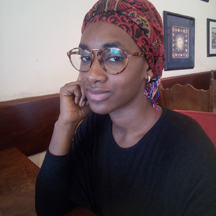
Breaking the Culture of Silence
(Part 1 of 2)
Donate Now: We
Raised: $145 | We Need: $725
(2nd consecutive


Breaking the Culture of Silence
(Part 1 of 2)
Donate Now: We
Raised: $145 | We Need: $725
(2nd consecutive
Advertisers | Contact Us | Events | Links | Media Kit | Our Company | Payments Pier
Press Room | Print Cover Stories Archives | Electronic Issues and Talk Radio Archives | Writer's Guidelines




